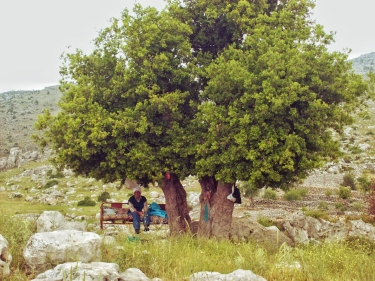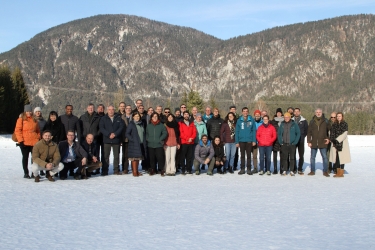Forest fire, climate change, resilience

In a Nutshell:
The recently kicked-off project "Waldbrand-Klimawandel-Resilienz" (short: WKR) deals with adapted forest and fire management in a changing climate. The aim of the project is to adapt international knowledge for German practice: bridging forest management, firefighting, and facilitating exchanges of experience and training.
Coordinated by the European Forest Institute (EFI) and the Forest Research Institute of the state of Baden-Württemberg (FVA), the project promotes knowledge and experience from countries facing comparable challenges and focus on learning from the application of best practices and lessons learned from across Europe. Central importance will be given to enhancing awareness and understanding for landscape fire challenges by promoting proactive public policy and management and avoiding reactiveness which is unsustainable and too often comes at a high price.
Background:
Recent landscape fires and significant disturbances of forest ecosystems pose challenges across Europe and globally, but especially in countries like Germany where the threat of fire is a relatively new, yet steadily growing challenge. The consequences of climate change, the hot, dry summers, storm damage and beetle infestation increase the vulnerability of forests and vegetation to fire. Across Germany, various affected actors have scrambled to react to this situation: First responders are often grappling with knowledge gaps or inadequate resources for combatting wildfires; land- and forest-owners have so far either neglected fire prevention management measures or are not aware of them; the understanding of landscape fires amongst the general public and public officials alike, stem largely from media coverage of such events occurring in southern Europe or elsewhere in the world.
Project:
The objective of WKR is to raise awareness of the causes of landscape fires in Germany, but also of their effects and appropriate handling at all levels. This forms the basis for competent, targeted action both in prevention and in the event of an actual fire – as integrated fire management encompasses all areas of prevention, management and follow-up. The project is designed to target the often neglected sectors of agriculture and forestry which must develop competence and responsibility, especially in preventive fire protection and strategic forest conversion. WKR offers exercises in demonstration areas in cooperation with many local partners, municipalities, forest owners, fire departments, but also in exchange with an international and experienced network. The knowledge transfer and exchange of experience are participatory and practical. Only when all actors act in close exchange and cooperate on a long-term basis can fire departments be relieved, emergency services protected and the resilient and thus sustainable forestry promoted.
More information you can find on the project website (german).


